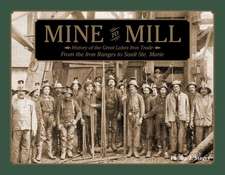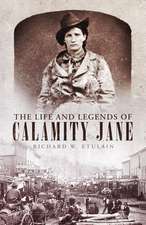Trading Roles – Gender, Ethnicity, and the Urban Economy in Colonial Potosí: Latin America Otherwise
Autor Jane E. Manganen Limba Engleză Paperback – 16 mai 2005
Din seria Latin America Otherwise
-
 Preț: 161.02 lei
Preț: 161.02 lei -
 Preț: 195.84 lei
Preț: 195.84 lei -
 Preț: 169.48 lei
Preț: 169.48 lei -
 Preț: 218.61 lei
Preț: 218.61 lei -
 Preț: 261.93 lei
Preț: 261.93 lei -
 Preț: 301.59 lei
Preț: 301.59 lei -
 Preț: 264.26 lei
Preț: 264.26 lei -
 Preț: 231.22 lei
Preț: 231.22 lei -
 Preț: 302.36 lei
Preț: 302.36 lei -
 Preț: 265.20 lei
Preț: 265.20 lei -
 Preț: 191.54 lei
Preț: 191.54 lei -
 Preț: 240.90 lei
Preț: 240.90 lei -
 Preț: 299.29 lei
Preț: 299.29 lei -
 Preț: 301.38 lei
Preț: 301.38 lei -
 Preț: 211.33 lei
Preț: 211.33 lei -
 Preț: 261.18 lei
Preț: 261.18 lei -
 Preț: 239.76 lei
Preț: 239.76 lei -
 Preț: 265.59 lei
Preț: 265.59 lei -
 Preț: 305.46 lei
Preț: 305.46 lei -
 Preț: 237.47 lei
Preț: 237.47 lei -
 Preț: 262.32 lei
Preț: 262.32 lei -
 Preț: 265.79 lei
Preț: 265.79 lei -
 Preț: 263.29 lei
Preț: 263.29 lei -
 Preț: 298.70 lei
Preț: 298.70 lei -
 Preț: 302.19 lei
Preț: 302.19 lei -
 Preț: 324.80 lei
Preț: 324.80 lei -
 Preț: 264.43 lei
Preț: 264.43 lei -
 Preț: 238.39 lei
Preț: 238.39 lei -
 Preț: 383.63 lei
Preț: 383.63 lei -
 Preț: 264.26 lei
Preț: 264.26 lei -
 Preț: 236.67 lei
Preț: 236.67 lei -
 Preț: 306.99 lei
Preț: 306.99 lei -
 Preț: 236.10 lei
Preț: 236.10 lei -
 Preț: 268.68 lei
Preț: 268.68 lei -
 Preț: 300.62 lei
Preț: 300.62 lei -
 Preț: 335.67 lei
Preț: 335.67 lei -
 Preț: 304.31 lei
Preț: 304.31 lei -
 Preț: 308.90 lei
Preț: 308.90 lei -
 Preț: 307.95 lei
Preț: 307.95 lei -
 Preț: 261.38 lei
Preț: 261.38 lei -
 Preț: 264.64 lei
Preț: 264.64 lei -
 Preț: 315.64 lei
Preț: 315.64 lei -
 Preț: 269.27 lei
Preț: 269.27 lei -
 Preț: 327.73 lei
Preț: 327.73 lei -
 Preț: 262.14 lei
Preț: 262.14 lei -
 Preț: 262.32 lei
Preț: 262.32 lei
Preț: 263.68 lei
Nou
Puncte Express: 396
Preț estimativ în valută:
50.46€ • 52.28$ • 42.11£
50.46€ • 52.28$ • 42.11£
Carte tipărită la comandă
Livrare economică 21 martie-04 aprilie
Preluare comenzi: 021 569.72.76
Specificații
ISBN-13: 9780822334705
ISBN-10: 0822334704
Pagini: 296
Ilustrații: 5 b&w photos, 5 tables, 3 maps
Dimensiuni: 156 x 235 x 15 mm
Greutate: 0.44 kg
Editura: MD – Duke University Press
Seria Latin America Otherwise
ISBN-10: 0822334704
Pagini: 296
Ilustrații: 5 b&w photos, 5 tables, 3 maps
Dimensiuni: 156 x 235 x 15 mm
Greutate: 0.44 kg
Editura: MD – Duke University Press
Seria Latin America Otherwise
Recenzii
Trading Roles is a pioneering study. The mass of research Jane E. Mangan has put into the work is truly amazing. She makes the lives of the vast majority of the population of Potosí come alive.Erick D. Langer, author of Economic Change and Rural Resistance in Southern Bolivia, 18801930Trading Roles is an unusually lively, detailed account of the underdogs of a colonial Spanish American city. It draws attention not only to relatively invisible historical actors but to the rich texture of the deals and socially patterned expectations that brought them together.Kathryn Burns, author of Colonial Habits: Convents and the Spiritual Economy of Cuzco, Peru"This intriguing work will be of interest to advanced students and specialists in Latin American trade and commerce, banking and credit, urbanization, and gender and ethnic studies. Recommended."V.H. Cummins, Choice"A superb work of social and economic history and a major contribution to the field of colonial Latin America. . . . Wonderful."Jeremy Baskes, Business History Review"Mangan's book . . . demonstrates postmodern sensibility without any postmodern silliness. . . . It leaves the reader with a memorable view of the indigenous people of Potosí wrestling their lives from the opportunities they found."Camilla Townsend, Journal of Colonialism and Colonial HistoryIn the historiography on colonial Potosí, Mangans work is distinctive for its concentration on the grassroots of daily market activities and mundane business dealings. . . . The great strength of Mangans book is that she brings to life the world of the common vendors, artisans, merchants, and suppliers that made a great colonial city work.Timothy E. Anna, Colonial Latin American Historical ReviewThis is a highly readable, well-argued study appropriate for courses on the urban economy as well as gender history. . . . It does offer an inclusive and fresh approach to understanding how women and men of all ethnic groups came to create a colonial world in Potosí.Karen B. Graubart, Hispanic American Historical ReviewMangans look at non-elite participation in Potosís economy is a contribution to our understanding of adaptation and negotiation in the face of an expanding colonial economic system. Cynthia E. Milton, Canadian Journal of Latin American and the CaribbeanMangans writing is skilful with keen turns of phrases as she evokes the sights and the smells of the Andean market. Firmly ethno-historical, Mangans book is accessible to undergraduate and graduate students alike, who can experience the complexity of southern Andean colonial society without the overwhelming barrage of specific terms, names, and cultural concepts.Rachel Sarah OToole, ItinerarioMangan makes a unique contribution by telling the local tale. . . . Mangan did the work and brings excitement to the narrative. The data is supported by attractive and effective maps, prints, and appendices. The writing is scholarly, agile, and even fun as Mangan follows the lives of Spanish, Criollo, Indigenous and African men and women in their economic pursuits.James J. Harrington, Canadian Journal of HistoryA fascinating and detailed case study based on important and original research. . . . Trading Roles makes a significant and thoughtful contribution to our understanding of specific networks of exchange, credit, and interaction in colonial Peru.Caroline Dodds, Sixteenth Century Journal
"Trading Roles is a pioneering study. The mass of research Jane E. Mangan has put into the work is truly amazing. She makes the lives of the vast majority of the population of Potosi come alive."--Erick D. Langer, author of Economic Change and Rural Resistance in Southern Bolivia, 1880-1930 "Trading Roles is an unusually lively, detailed account of 'the underdogs' of a colonial Spanish American city. It draws attention not only to relatively invisible historical actors but to the rich texture of the deals and socially patterned expectations that brought them together."--Kathryn Burns, author of Colonial Habits: Convents and the Spiritual Economy of Cuzco, Peru "This intriguing work will be of interest to advanced students and specialists in Latin American trade and commerce, banking and credit, urbanization, and gender and ethnic studies. Recommended."--V.H. Cummins, Choice "A superb work of social and economic history and a major contribution to the field of colonial Latin America... Wonderful."--Jeremy Baskes, Business History Review "Mangan's book ... demonstrates postmodern sensibility without any postmodern silliness... It leaves the reader with a memorable view of the indigenous people of Potosi wrestling their lives from the opportunities they found."--Camilla Townsend, Journal of Colonialism and Colonial History "In the historiography on colonial Potosi, Mangan's work is distinctive for its concentration on the grassroots of daily market activities and mundane business dealings... The great strength of Mangan's book is that she brings to life the world of the common vendors, artisans, merchants, and suppliers that made a great colonial city work."--Timothy E. Anna, Colonial Latin American Historical Review "This is a highly readable, well-argued study appropriate for courses on the urban economy as well as gender history... It does offer an inclusive and fresh approach to understanding how women and men of all ethnic groups came to create a colonial world in Potosi."--Karen B. Graubart, Hispanic American Historical Review "Mangan's look at non-elite participation in Potosi's economy is a contribution to our understanding of adaptation and negotiation in the face of an expanding colonial economic system." --Cynthia E. Milton, Canadian Journal of Latin American and the Caribbean "Mangan's writing is skilful with keen turns of phrases as she evokes the sights and the smells of the Andean market. Firmly ethno-historical, Mangan's book is accessible to undergraduate and graduate students alike, who can experience the complexity of southern Andean colonial society without the overwhelming barrage of specific terms, names, and cultural concepts."--Rachel Sarah O'Toole, Itinerario "Mangan makes a unique contribution by telling the local tale... Mangan did the work and brings excitement to the narrative. The data is supported by attractive and effective maps, prints, and appendices. The writing is scholarly, agile, and even fun as Mangan follows the lives of Spanish, Criollo, Indigenous and African men and women in their economic pursuits."--James J. Harrington, Canadian Journal of History "A fascinating and detailed case study based on important and original research... Trading Roles makes a significant and thoughtful contribution to our understanding of specific networks of exchange, credit, and interaction in colonial Peru."--Caroline Dodds, Sixteenth Century Journal
"Trading Roles is a pioneering study. The mass of research Jane E. Mangan has put into the work is truly amazing. She makes the lives of the vast majority of the population of Potosi come alive."--Erick D. Langer, author of Economic Change and Rural Resistance in Southern Bolivia, 1880-1930 "Trading Roles is an unusually lively, detailed account of 'the underdogs' of a colonial Spanish American city. It draws attention not only to relatively invisible historical actors but to the rich texture of the deals and socially patterned expectations that brought them together."--Kathryn Burns, author of Colonial Habits: Convents and the Spiritual Economy of Cuzco, Peru "This intriguing work will be of interest to advanced students and specialists in Latin American trade and commerce, banking and credit, urbanization, and gender and ethnic studies. Recommended."--V.H. Cummins, Choice "A superb work of social and economic history and a major contribution to the field of colonial Latin America... Wonderful."--Jeremy Baskes, Business History Review "Mangan's book ... demonstrates postmodern sensibility without any postmodern silliness... It leaves the reader with a memorable view of the indigenous people of Potosi wrestling their lives from the opportunities they found."--Camilla Townsend, Journal of Colonialism and Colonial History "In the historiography on colonial Potosi, Mangan's work is distinctive for its concentration on the grassroots of daily market activities and mundane business dealings... The great strength of Mangan's book is that she brings to life the world of the common vendors, artisans, merchants, and suppliers that made a great colonial city work."--Timothy E. Anna, Colonial Latin American Historical Review "This is a highly readable, well-argued study appropriate for courses on the urban economy as well as gender history... It does offer an inclusive and fresh approach to understanding how women and men of all ethnic groups came to create a colonial world in Potosi."--Karen B. Graubart, Hispanic American Historical Review "Mangan's look at non-elite participation in Potosi's economy is a contribution to our understanding of adaptation and negotiation in the face of an expanding colonial economic system." --Cynthia E. Milton, Canadian Journal of Latin American and the Caribbean "Mangan's writing is skilful with keen turns of phrases as she evokes the sights and the smells of the Andean market. Firmly ethno-historical, Mangan's book is accessible to undergraduate and graduate students alike, who can experience the complexity of southern Andean colonial society without the overwhelming barrage of specific terms, names, and cultural concepts."--Rachel Sarah O'Toole, Itinerario "Mangan makes a unique contribution by telling the local tale... Mangan did the work and brings excitement to the narrative. The data is supported by attractive and effective maps, prints, and appendices. The writing is scholarly, agile, and even fun as Mangan follows the lives of Spanish, Criollo, Indigenous and African men and women in their economic pursuits."--James J. Harrington, Canadian Journal of History "A fascinating and detailed case study based on important and original research... Trading Roles makes a significant and thoughtful contribution to our understanding of specific networks of exchange, credit, and interaction in colonial Peru."--Caroline Dodds, Sixteenth Century Journal
Notă biografică
Textul de pe ultima copertă
""Trading Roles" is an unusually lively, detailed account of 'the underdogs' of a colonial Spanish American city. It draws attention not only to relatively invisible historical actors but to the rich texture of the deals and socially patterned expectations that brought them together."--Kathryn Burns, author of "Colonial Habits: Convents and the Spiritual Economy of Cuzco, Peru"
Cuprins
Descriere
A social history of trade in a colonial city in Peru, arguing that markets, stores, and taverns were important sites of cultural creation and showing how the gender and ethnic identities of participants affected how they adapted to the market economy.












